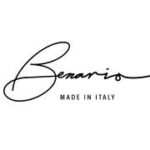What is Private Label Apparel?
Private label apparel involves third-party manufacturers producing clothing for retailers or companies, sold under their brand names. In this business collaboration, the brand or retailer works with external producers to create exclusive products without owning manufacturing facilities. This strategy lets businesses concentrate on design and marketing, utilizing manufacturing expertise without significant infrastructure investments. Widely used in the fashion industry and other sectors, private-label apparel allows brands to provide distinctive, customized products while retaining control over their own unique image and specific market position.
What is Apparel Contract Manufacturing?
Apparel contract manufacturing involves outsourcing clothing production to third-party manufacturers. In this model, brands or companies supply design, specifications, and materials, while specialized manufacturers handle the production process. These manufacturers are equipped with the necessary infrastructure and expertise, allowing them to produce clothing on behalf of the brand. This practice allows brands to concentrate on design, marketing, and sales, streamlining operations without the need for extensive in-house manufacturing infrastructure that is costly and time-consuming. Common in the fashion industry, apparel contract manufacturing facilitates efficient scaling of operations and adaptability to market demands.
How To Do Private Label for Apparel Brands?
Creating a private label for apparel brands involves several essential steps: identifying a reliable manufacturing partner with the expertise you are looking for, collaborating on product specifications, design, and branding, and maintaining clear communication to align visions clearly from the start of the business relationship. Once the design is approved, the manufacturer proceeds with bulk production and labels the products with the brand identity. Effective marketing, including unique branding and positioning, is essential for product differentiation. Successful private labeling requires meticulous partner selection, clear and honest communication, quality control, and a strong marketing plan to establish a distinctive brand presence.
Benefits of Private Label Manufacturing for Your Apparel Business
Private label manufacturing offers apparel businesses several advantages. It allows brands to create exclusive products without the need for extensive in-house manufacturing because instead specialized partners handle production. This arrangement enables brands to focus on design, marketing, and sales while benefiting from the expertise, expertise, and infrastructure of their manufacturing partners The flexibility of private label manufacturing facilitates a smooth and quick market entry and adaptable responses to trends as consumer tastes evolve. Cost advantages arise from avoiding upfront expenses linked to establishing and maintaining production facilities. Additionally, this approach allows brands greater control over branding and positioning, fostering a specific, stand-out identity in a competitive market. In essence, private-label manufacturing enhances efficiency, flexibility, and brand distinctiveness for apparel businesses.
What is the size of the apparel market?
The global apparel market, valued at $2,005 billion in 2022, is forecasted to grow steadily at a CAGR of over 4% from 2022 to 2027, with the U.S. apparel market reaching $556.1 billion in 2022 and expected to continue growing, particularly in menswear. The fashion e-commerce market in the U.S. is on the rise, projected to exceed $300 billion by 2027. Key segments such as clothing, footwear, accessories, and jewelry are expected to see significant growth, driven by factors including increasing consumer demand, technological advancements, sustainability trends, and the rise of resale and secondhand markets. E-commerce is anticipated to play a substantial role, facilitating a considerable portion of luxury goods sales. Overall, the apparel industry is primed for substantial expansion, surpassing $2 trillion by 2027, propelled by various market segments and evolving consumer behaviors.
What are the factors driving growth in the apparel industry?
The apparel industry is set for sustained growth from 2024 onwards, driven by increasing consumer demand spurred by evolving fashion trends and rising spending power, especially among working women and in emerging economies like China and India. Technological advancements such as virtual try-on, AI recommendations, and the metaverse enhance the shopping experience, while innovative materials and manufacturing processes boost apparel appeal. E-commerce growth, projected at a CAGR of 7.9% from 2022 to 2030, is fueled by rising smartphone and internet penetration, with major players like Amazon and Alibaba investing in apparel offerings. Sustainability trends further drive growth, with consumers demanding eco-friendly options and the resale market expanding due to sustainability concerns and cost consciousness.








-150x150.png)


